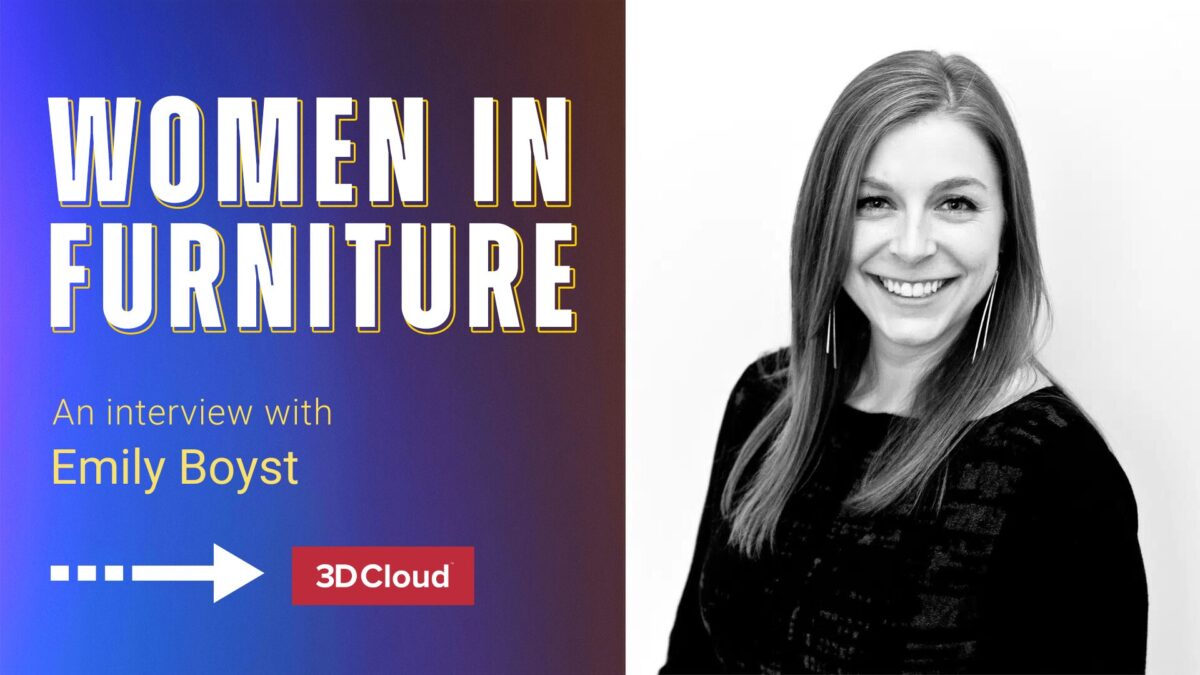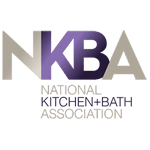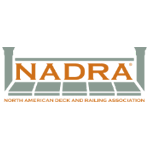In honor of Women’s History Month, we are introducing our Women in Furniture series, which celebrates women who are experienced leaders in the furniture industry. Gender diversity in the furniture workplace is still far behind other industries. At 3D Cloud™, we continue to advocate and support outstanding women who push the industry forward. So, grab yourself a coffee, pull up a chair, and meet —
Emily Boyst.
She didn’t know she’d work in furniture, let alone be the president of a leadership development network for women in the furniture industry! We’re excited to introduce you to Emily Boyst, Senior Director of Licensing and Special Projects at Hooker Furnishings. In her role at Hooker Furniture, Emily works with her team to manage licensing projects, launch programs in new sectors of the industry, and much more. In this article, Emily shares her career journey and insights into the furniture industry.
Emily, what steps did you take to become the Senior Director of Licensing & Special Projects at Hooker Furniture?
EB: It’s one of those roles where you’re kind of the utility player. You can take on special projects in the end, so you can kind of get involved in a lot of different things, which is actually awesome. I love it. I started almost two years ago. I started in a licensing role, much more specific to just our licensing department, and I came in with a lot of intention that I wasn’t going to be where I stayed for a super long time. I made it well known at the interview and continued to make it well known.
As I progressed in that role, I wanted more. I wanted to keep getting responsibilities and exposure to more things in the company. I just went in with a lot of intent and a lot of communication about what I wanted to do more. I think that that asking questions, getting to know people who weren’t just on my team, and reaching out to people who are in marketing, people who are in sales, and people who were doing product development. It was just getting little snippets of what they’re doing every day. The things that keep them up at night and just learning about all the intricacies of the company and really figuring out what I’m interested in. Maybe I can ask more questions and go to my supervisor and ask, “Hey, can you tell me more about this?” My supervisor at the time was more than willing to share his great knowledge of the company. He’s been here for over 20 years, so he knows everything. Finding that as a great resource to give me more information and use that as a jumping point of, “ I’m really interested in that. I have some ideas. I have some thoughts. Would you hear me out?” That led to, “Sure, we can give you a project. Let’s give her a test drive. “ Intentionally asking for and getting some of those extra little opportunities here and there. The projects get a little bigger. Just having open conversations about that ongoing was really how I got to where I am today and hopefully where I’ll get to in the future. I continue to do it. It’s just something I feel very strongly about. I know no one’s gonna be a better advocate for me than me. So, trying to make other cheerleaders for me along the way by being curious and helping them do their jobs. I’m not perfect at everything.
You have a big desire to learn. That’s cool.
EB: I think that’s one of the biggest things that that gives me an edge over some other people in any company. It’s about really wanting and understanding that knowing more is going to give me more context to make myself more useful. I’m just kind of hardwired that way, but it’s certainly something you can teach yourself to do as well.
Was there a pivotal decision that led you into that leadership position?
EB: I think so, but before I was formally promoted to the senior level, I was given a very large project to manage, and it was launching a brand new program for us. It took a lot of collaborating and getting a lot of key stakeholders and different parts of the company to buy in and get on board. That was kind of the pivotal moment for me at the company. I was able to prove it by doing, and I’m a believer that you don’t always just get something because you ask for it. Sometimes you got to put in the work to prove yourself, and it’s worth it.
There are a lot of things throughout my career that prepared me to get to that point. A lot of different roles were either coming up with ideas or helping with the implementation part, or just coming up with the structure to get implementation and being able to go from beginning to end. Experience definitely helped me through some trial by error. Some were just sheer luck, and others were very intentional in taking positions to make sure I was learning all the things that I knew I wanted and needed to get to a more senior level.
In your current role as a Senior Director of Licensing & Special Projects, what are some of your responsibilities now?
EB: I’ll start with the licensing part in licensing. We currently have two partners, and we create licensed products for those brands. We work with Scott Brothers Global. We are a furniture manufacturer distributor, so we make furniture. They’re a global brand with great recognition and a great fan following. So, we pair the two. It’s my job to make sure that pairing is good, stays good, and continues. We have to collaborate on what the creative drive is for those collections of products making sure the product development team is on board and following the right process to get input along the way. Making sure we’re actually producing the product on time, pricing appropriately, and that we’re coordinating our marketing team and their marketing team. It’s a lot of collaborating to ensure all the pieces are falling into the right places. We also have a similar license with Susan G. Komen. We are the leader in the industry to say to have a licensed deal with a company and organization like that. We just launched it in October. We have new products coming out in April. That’s a little bit different because it’s around a cause. It’s about how you create something inspirational to support an amazing cause and then help spread the word and that mission through things like sales and retail placements and giving resources to retailers or even employees to learn more about the mission, support it in their own way, and really just spreading the cause. It’s a lot of collaboration between our team here at Hooker and with those licensing partners.
On the special project side, it could be anything, any day, which for me is exciting. I like new things. I like to be given this existential idea or problem and say, “Where do we go with this?” We launched a warehouse at Domestic Warehouse with some of our brands that didn’t have as big of a footing in that way. It was really to expand our portfolio.
We want to expand our customer base. How do we actually do that? How do you plan the right amount of inventory? How do you market it the right way? How do we get the right people to come to our showroom and engage with us? How do we adapt our sales team and their mindset? It was all hands on deck and figuring out who the right people are to implement certain things at each time.
Sounds like you’re meeting a lot of different people too. That’s awesome.
EB: Yes, that’s not for everyone. I’m someone who really likes working with people and someone who likes to collaborate. That’s me. That’s my stick.
What’s the best thing about working for Hooker?
EB: Being able to work with all kinds of different people and departments. It’s actually the people themselves. We have such an amazing team, and we have a team that comes from all walks of life. They bring different perspectives, and everyone comes to the table with with compassion and passion for what our company does. It makes it so easy to get behind a project or cause. If you don’t love the people that you’re working with, it can be very difficult sometimes to get things done and feel like you’re really accomplishing something. I don’t feel like I run into that a lot. We’ve got several offices and several factories. We even have teams in Asia. A simple email, a simple message to literally anyone, and you’ll get a response pretty quickly. It’s very refreshing.
That’s awesome. Sounds like everyone is very willing to collaborate with each other.
EB: It’s very helpful for someone in a role like mine.
How did you actually land in the furniture industry?
EB: Oh, it was a very happy accident. When I was in college, I didn’t know what I wanted to do. One of my classmates who graduated reached out when I was at that stage and said, “Hey, I’m working at this pretty small company. There are maybe 30 of us here. Most of us are in our 20s; it’s very forward-thinking.” It just happened to be in the furniture industry. It was one of those things where you just connect with the culture, and you just want someone to take a chance on you. In the beginning, I started writing about furniture and learned so much. Opportunities would come up weekly, if not daily, to do more or do something different. That’s how I really got integrated into figuring out my work style of wanting to learn more. The more I knew, the more I could contribute.
Industry-wise, I started traveling the markets, and I fell in love with the industry after the first market I went to just because of the people I met. If you’ve never been to High Point Market, I don’t know how to describe it to you, but you’re exhausted, your feet hurt, and everything is a blur. By the time you’re done, you get home, and you just go, Wow! That was awesome.
What are some of the unique challenges of the career and furniture?
EB: The furniture industry is so interesting. It’s not necessarily so vastly different from other industries, but we tend to lag behind a little bit, especially when it comes to technology and innovation and implementing new processes. It’s gonna be there for a while. It just takes longer for our industry to implement new technology. We’ve got manufacturing, retail, and service providers, and they don’t all speak the same language in terms of technology. Implementing things can be a little trickier and take a little longer.
One other thing, we have an aging workforce in our industry as well. It’s gotten better over time, but it’s still very much a thing. If you look at leadership across the industry, there’s a lot of opportunity for my generation, our generation, and even younger, to really step into some big roles quickly. Again, it’s a challenge, but it’s an opportunity. There needs to be more planning of who’s coming up behind you and people like us who are right there, ready and willing. Not necessarily just drop us in the bucket, but give us those opportunities to sit in with you, and get some guidance, get a little mentorship so that in a year or two, we are ready to dive in. It excites me because I know there are so many opportunities for someone like me, my age, to be able to jump into something bigger, quicker than some of my friends in a different industry.
So how do you motivate team members?
EB: I’m very much a “do as I do,” not “do as I say.” I like to recognize that everyone has their strengths, and we should let them use them. I know my personal strength may not be X, but I know I have a team member who is, so let them lead that part. I’ll be there to support you. Also, celebrating wins, big or small. If you had a great call with a client today, great, let’s recognize that; that’s amazing; keep going. It’s honestly little things along the way.
What advice would you give to younger women considering a career in the furniture industry today?
EB: Do it, do it. Do it with a lot of vigor and be brave about it. There are a lot of things to be afraid of when you don’t know things, but there’s so much opportunity in this industry because of some of the things that we’ve already talked about. Have an open mind. Not every role is going to be the exact role you want or think, but there’s something to be learned in everything that you do, and most of the time, you’re gonna get a lot out of it. Sometimes it’ll be a, what not to do or what you really don’t like, but you’re still learning about yourself and figuring out how to grow from there. Being vocal about what your intent is. “I want to do more. I want to learn more.” Go for it. Dive in. Ask a lot of questions and ask for what you want.
“Being vocal about what your intent is. “I want to do more. I want to learn more.” Go for it. Dive in. Ask a lot of questions and ask for what you want.” – Emily Boyst, Senior Director of Licensing and Special Projects at Hooker Furniture
How important is it to have a network of other women as you grow?
EB: I’ve been a part of WithIt for a very long time, almost at the onset of my career, and it has been very important for me. I was networking to learn. I was networking to get motivated because I didn’t know what I wanted to do when I grew up. I was looking at women in the industry and women in my WithIt community and seeing where they were. It was the motivation for me to get to that point in my life as well. Getting advice and having support during times of my life or my career when I just really wasn’t sure what to do and being able to lean on people who understood what I was going through without judgment or the bias of them has been so important. You make some really great lifelong friends as well. It’s the natural desire for that community to mentor and help and lend a hand and bring your name to the table when it should be brought to the table is invaluable.
Do you have a mentor today?
EB: I don’t have a formal mentor today. I have I’ve shifted throughout my career between formal and informal mentorship. I have a few informal mentor relationships that I lean on, and it’s much more of a “call if you need something.” Previously, I’ve had a more formal mentorship where we would schedule times to meet and talk about very specific things, and I would get challenged very hard during those stages of my career when I needed it. I probably will need it again in the future. It’s so worth having if you can. I will say my WithIt community is definitely one that I lean on for that.
Can you tell us a little bit about your role with WithIt now you’re the 2023 President?
EB: Yes! Madam President! I’m the President of WithIt this year, 2023. WithIt has its own mission and goals, but I’m developing what the specific goals are for 2023 and really enacting our board of directors to make sure that we are acting in a way that follows that mission and our goals. Increasing membership and expanding exposure are two of the things that I asked that we focus on because our industry is vast. There’s lighting, there’s the decor, there’s actual furniture, and many more things, so we are expanding our network to spread the love that we have and all the awesome things that we do. We have an amazing board. They’re the ones grinding every day. As President, you help oversee, and you step in to help when you can with whatever you can. It’s really being the spokesperson and that guide of, “Let’s do this, ladies. We’ve got it.”
What values are most important to you as a leader?
EB: Honesty and integrity are the biggest two. This also goes without open communication. Being open and honest about things, whether they’re good, bad, or somewhere in between, is very important as a leader. You shouldn’t be sugarcoating things if they really shouldn’t be. Celebrate when it’s time to celebrate. Listening as a leader. If you’re not listening to your people, you’re missing a lot of opportunities to really understand what’s happening in your company or organization. Your team, they’re the ones doing all the work, all day, every day. As a leader, you should be cognizant of what that is. What are their struggles? What are the things that are going well? How can you, as a leader in a way to make them better or replicate the things that are going well? Make sure that your team has the resources they need. If you’re not listening, you’re really missing out as a leader.
“Being open and honest about things, whether they’re good, bad, or somewhere in between, is very important as a leader.” – Emily Boyst, Senior Director of Licensing and Special Projects at Hooker Furniture
You have an incredible leadership style. Being as busy as you are, what keeps you grounded and energized?
EB: Oh, man. I’m obviously an extrovert, if you haven’t noticed by now, but my friends and my family are very near and dear to me. They’re usually what I center my actions and my schedule around. I also really like puzzles and my brain teasers. That’s something that keeps me going but also lets me take a step back from work. I’m also seven months pregnant, so I’ve been in super nesting mode at the moment, getting ready for baby number one. Those are the things that it’s like, “Okay, this is what life is about. These are the things that are really important to me. These are the things that are important to everybody; work can come after that.”
Emily Boyst is a trailblazer in the furniture industry, breaking barriers and inspiring other women to pursue their passions. Her dedication to quality has made her a respected figure in the industry, and her commitment to promoting diversity and inclusion is an example for all of us. We are grateful for the opportunity to showcase her remarkable achievements and hope that her story serves as an inspiration to all those who aspire to make a difference in their chosen fields.
Thank you, Emily, for sharing your career journey with us.











